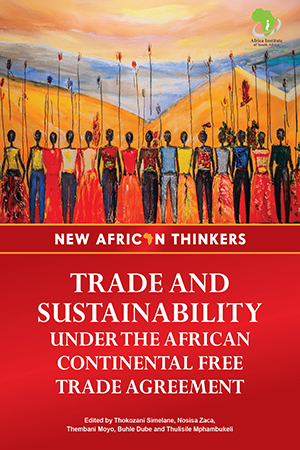BOOKS
Negotiating Privacy: The European Union, the United States, and Personal Data ProtectionDorothee Heisenberg How did the European Union come to be the global leader in setting data privacy standards? And what is the significance of this development? Dorothee Heisenberg traces the origins of the stringent EU privacy laws, the responses of the United States and other governments, and the reactions and concerns of a range of interest groups. Analyzing the negotiation of the original 1995 EU Data Protection More > |  |
Negotiating the Net in Africa: The Politics of Internet DiffusionErnest J. Wilson III and Kelvin R. Wong, editors Why do national patterns of Internet expansion differ so greatly throughout Africa? To what extent do politics trump technology? Who are the "information champions" in the various African states? Addressing these and related questions, Negotiating the Net in Africa explores the politics, economics, and technology of Internet diffusion across the continent. The "Negotiating More > |  |
Nepad: Toward Africa's Development or Another False Start?Ian Taylor Enthusiastically embraced by African presidents, G-7 leaders, and the UN General Assembly alike, the New Partnership for Africa's Development has been advanced as the vehicle that will vitalize the continent's economies. Ian Taylor critically explores just what Nepad is, and what potential it has—or lacks—for promoting African development. More > |  |
Neva Again: Hip Hop Art, Activism, and Education in Post-Apartheid South AfricaAdam Haupt, Quentin Williams, H. Samy Alim, and Emile Jansen, editors The culmination of decades of work on hip hop culture and activism, Neva Again weaves together the many varied and rich voices of the dynamic South African hip hop scene. The contributors—including scholars, activists, and the artists themselves—present a powerful reflection of the potential of youth art, culture, music, language, and identities to shape both politics and world views. More > |  |
Never Too Late to Remember: The Politics Behind New York City's Holocaust MuseumRochelle G. Saidel Why did New York City, the largest center of Jewish culture and home to more survivors than any other city in the United States, take more than half a century to finalize plans for its Holocaust memorial? Rochelle Saidel offers a detailed analysis of how local power brokers, real estate developers, major political players, and various groups within the national Jewish community More > |  |
New African Thinkers: Considering Peace and Development in AfricaRodney Managa, Check Achu, and Vuyo Mjimba, editors Emerging and midcareer scholars from across Africa explore the complexities of peace and development on the continent, providing insights and actionable strategies for lasting stability and prosperity. More > |  |
New African Thinkers: Culture at the Heart of Sustainable DevelopmentOlga Bialostocka, editor In New African Thinkers, young scholars from across Africa discuss their vision for the social, political, and economic future of their continent. A unifying element running throughout their work is the argument that culture—defined broadly as a way of life, system of values and controls, and modes of practice and expression—lies at the heart of a reimagined Africa: a place of More > |  |
New African Thinkers: Drivers of ChangeOlga Bialostocka and Thokozani Simelane, editors Emerging scholars from across Africa focus on the multiple innovative ways through which Africa has been confronting challenges. The chapters cover peace and security including democracy and governance, gender and global change, development for the people, as well as science and technology. The book grew out of the Ninth African Young Graduates and Scholars conference which is rooted in the More > |  |
New African Thinkers: Trade and Sustainability Under the African Continental Free Trade AgreementThokozani Simelane, Fortunate Nosisa Zaca, Thembani Moyo, Buhle Dube, and Thulisile Ncamsile Mphambukeli, editors Emerging scholars from across Africa ask critical questions about the African Continental Free Trade Agreement (AfCFTA). For example: How can AfCFTA move beyond rhetoric to boost agricultural production to solve food insecurity, empower farmers, and create resilient markets? What specific policy shifts, technological innovations, and structural reforms are essential to make intra-African trade a More > |  |
New Immigrant Communities: Finding a Place in Local PoliticsKristi Andersen How do US immigrants, who settle in places with varied political and social characteristics, find a place at the table in local politics? In particular, how do arrivals to smaller, less-established immigrant communities become politically incorporated? Drawing on rich interview data and cases from across the United States, Kristi Andersen compares communities to reveal what types of environments More > |  |







